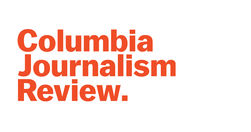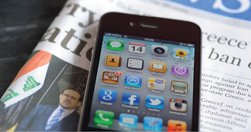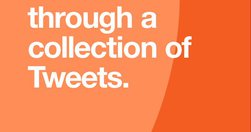Relevant Overviews
- Communication Strategy
- Content Strategy
- Online Strategy
- Online Community Management
- Social Media Strategy
- Content Creation & Marketing
- Online Architecture
- Digital Transformation
- Change & Project Management
- Thinking tools
- Personal Productivity
- Innovation Strategy
- Disinformation in the US 2020 elections
- Communications Tactics
- Psychology
- Social Web
- Media
- Politics
- Communications Strategy
- Science&Technology
- Business
Today I have just one Topic: Quit Social Media. Your Career May Depend on It. This advice, from Professor Cal Newport in the New York Times, may seem counter-intuitive. Which is exactly the point.

the market rewards things that are rare and valuable. Social media use is decidedly not ... Any 16-year-old with a smartphone can invent a hashtag ... The idea that if you engage in enough of this low-value activity, it will somehow add up to something of high value in your career is dubious ... snake oil and flimflam... why not also expose your…

disconnectionists don’t seem to have a robust political plan for addressing their concerns; it’s all about small-scale individual action. “Individuals unplugging is not actually an answer to the biggest technological problems... We must subject social media to the kind of scrutiny that has been applied to the design of gambling machines in Las Veg…
If you think this election is insane, wait until 2020... technologies like AI, machine learning, sensors and networks will accelerate. Political campaigns get ... so personalized that they are scary in their accuracy and timeliness. The single most important factor influencing your voting decision is your social network… so you can bet that politi…

many of us have burrowed into our own echo chambers of information. In a recent Pew Research Center survey, 81 percent of respondents said that partisans not only differed about policies, but also about “basic facts.”... if you study the dynamics of how information moves online today, pretty much everything conspires against truth... when confron…

Two convergent trends are making populism a potent negative force. First, democracies have morphed into unrepresentative plutocracies that lead growing numbers of people to feel shut out and voiceless... Media ... business model is now based on social media and clicks, not facts. Clicks depend on theatrical performance, stunts, celebrity, ent…
Segregated social universes, an industry moving from red states to the coasts, and mass media’s revenue decline: The disconnect between two realities shows no sign of abating... American political discourse in 2016 seemed to be running on two self-contained, never-overlapping sets of information... today’s media ecosystem encourage that separatio…

This updates both my earlier Taming the Firehose and Where is social media taking you in 2016? posts, and better aligns my productivity process with my personal content strategy.
over 30 news organizations ... and tech companies such as Facebook, Twitter, and YouTube to share best practices on how to verify true news stories and stop the spread of fake ones.

“a monopoly of content distribution that will be mainly driven by user-generated content, and by professional content by commercially interested players.... pretty traumatic scenario of information or propaganda. It will be very painful for democracies.”

with newsrooms reeling... a weakening of the stable platforms threatens to cause general informational impoverishment, a degradation of the entire information ecosystem. Adding to the worry, people today are exposed to news ... through a single platform—mainly social networks, which tend toward a clustering of like-minded individuals. Together,…
I’m not saying that these are the only principles that work on Twitter. But I think they’ve worked for me, and for my purposes.

as news outlets tailor their content to addictive platforms to pump up traffic, the distinction between consuming journalism and being wedded to “emails, constant notifications, and social media” is increasingly meaningless... if we are what and how we read, then our thinking will mirror the scattered and shallow tendencies of Web browsing.... …

a research paper ... found depressing proof that the web is fuelling segregation.... matched the attitudes of those who did and did not have broadband with data on partisan hostility... Greater use of the web ensured that an admirer of Jon Stewart would think that conservatives were not just mistaken but stupid, or a viewer of Fox News would wor…

image... apparently shows the spread of radiation from the Fukushima nuclear accident... being shared widely ... despite the fact that it... shows the wave height of the tsunami... you might want to doublecheck before hitting Share... here’s how

You may not care about social media now, but if you read a newspaper, listen to the radio or watch TV, then it’s shaping your world already... The real game is hardening your own support in ways dramatic enough to be picked up by the mass media ... the easiest way of doing that is to pick a rollicking fight... Lacking an established political mac…

News Feed Changes Mean Brands Should Invest in Facebook People More Than Pages... The News Feed algorithm is a lagging indicator, not a leading one. It now properly reflects what study after study shows the public truly values: relationships... No organization will ever be on the same footing as peers... Invest in Facebook people, more so than p…
As young people flock to Snapchat, news outlets are trying to showcase news on the platform both as live stories and in Discover, where nearly 20 outlets... publish unique content exclusive to Snapchat.... set to launch a redesign of its Discover section to try and boost the number of users who use Discover... While Snapchat’s core function is a m…

Two-thirds of Facebook users (66%) get news on the site, nearly six-in-ten Twitter users (59%)... seven-in-ten Reddit users ... Tumblr 31% for the other five social networking sites about one-fifth or less ... Facebook ... reaching 67% of U.S. adults. The two-thirds of Facebook users who get news there, then, amount to 44% of the general populati…
This isn’t the first time I’ve covered the impact of social media on news; technologies like augmented reality; and the impact of both on society. It is the first time these Top3ics have meshed so perfectly in one month.

“Trump leveraged a perfect storm... social media (big following), brand (celebrity figure), creativity (pithy tweets), speed/timeliness (dominating news cycles)"... Combining modern-day fame and an age-old demagogy, he bypassed the ossified gatekeepers and appealed directly to voters through a constant Twitter stream that seemed interrupted only b…
Think about platforms as fishing places where you can find large, engaged audiences and build a relationship with them by providing content. Then offer these users some other services off-platform... Never outsource the future... a great primer for news organizations just starting to tackle the distributed world and a good checklist for those mor…

by using social media curation, news organisations can remove the need for readers to look elsewhere, by automatically pulling in relevant social content from around the internet onto their websites... produce a quick breaking-news social stream related to a subject, or social content specifically focused to highlight the ideas and arguments withi…

But what we are building with artificial reality is an internet of experiences... although every one of these environments was fake, the experiences I had in them were genuine... you gain authentic experiences, as authentic as in real life. People remember VR experiences not as a memory of something they saw but as something that happened to them.…

Very few ... are capable of regularly creating compelling videos ... as social platforms look to saturate their feeds with video... they’re essentially competing for the same limited set of good videos. So those who create the quality stuff can demand payment. In recent weeks, those payments have begun flowing. For Facebook... people are simpl…

The potential – or, sadly more accurately, theoretical – political power of social media is to provide an important public forum in which those of diverse opinions can freely interact, rather than living in political enclaves inhabited only by those who reinforce what everyone already believes. The truth is that those entrenched political division…

What happened when I was invited to “do a Rápido” at the IABC’s conference in Rotterdam earlier this week.

Publications are hiring a point person to coordinate with new platforms like Facebook Instant Articles and Snapchat Discover... product changes of platforms happen on a daily basis. Just to track those changes and newly emerging platforms is a full-time job in itself

Last spring, the Financial Times altered its former metered access model and introduced paid trials, letting users pay £1 ($1.42) for a month’s access to content. At the same time, the newspaper also changed its policies toward social platforms and began making more content free to people coming to its site from Google, Facebook and Twitter. It la…
Relevant Overviews
- Communication Strategy
- Content Strategy
- Online Strategy
- Online Community Management
- Social Media Strategy
- Content Creation & Marketing
- Online Architecture
- Digital Transformation
- Change & Project Management
- Thinking tools
- Personal Productivity
- Innovation Strategy
- Disinformation in the US 2020 elections
- Communications Tactics
- Psychology
- Social Web
- Media
- Politics
- Communications Strategy
- Science&Technology
- Business
